Book review: Atheist Universe
by David Mills
★★★★★
This is a well-written, concise, interesting overview of the argument against Christian fundamentalism … particularly Creationism.
How did the universe come into being? We don’t know. But new discoveries in quantum theory, as well as research done by Stephen Hawking and his colleagues, have demonstrated that matter can and does arise quite spontaneously from the vacuum fluctuation energy of “empty” space.
Intelligent Design? Mills states that “ID’s greatest triumph … has been in convincing the general public that there is a controversy raging among scientists over Intelligent Design. There is no scientific controversy whatever.”
So how did life begin? Well, we know God isn’t necessary. There is no need for spontaneous creation of complex cells; the first cells contained no nucleus at all, consisting mainly of an exterior membrane. Biological membranes form easily and spontaneously from a mixture of water and simple lipids. From there, the evidence for evolution is overwhelming, and Mills carefully refutes argument after argument posed by creationists.
Life after death? Forget having science on your side, here. For example, if the law of the conservation of mass/energy necessitates consciousness after death (because mass/energy can be neither destroyed nor created) then the same law requires consciousness before conception.
There just isn’t any real debate among scientists in these matters. A study in 1998 revealed that, of the membership of the National Academy of Sciences, only 7 percent believed in a personal God, and even fewer in Creation Science or Intelligent Design. The point I took away from the book is this: Religious beliefs must remain beliefs; no more or less. The Bible’s creationist claims are not and cannot be supported by science.

Book review: 365 Read-Aloud Bedtime Bible Stories
by Daniel Partner
★★★★
I have been on the lookout for a good introductory book for adults to the stories in the Bible, and someone told me this children’s book would actually be a good one. They were right, I read through every story and enjoyed it! It’s a one-year collection of short Bible stories; you get 211 from the Old Testament, and 154 from the New (mostly Acts and the Gospels).
Do be aware that its target audience really is young children. You won’t find any of the Bible’s “adult themes” herein. Rahab isn’t a harlot; she’s just a nice lady. Mary isn’t a virgin. I guess that would be a little too complicated to explain.
365 days wasn’t quite enough for Partner to get through the Bible, probably because of an overemphasis on the teachings of Jesus, so you won’t find a full coverage of the Bible. For example, if there was anything at all about Ezekiel, one of the Bible’s more important prophets, I missed it. I was a little surprised at this, since Ezekiel’s dreams and publicity stunts would make for memorable children’s lessons.
You will, however, find a great deal of attention given to the kings of Israel and Judah, to the destruction of Jerusalem and the Temple, to the deportation into captivity, to the release from captivity and rebuilding of the Holy Land. Excellent; I’m in favor of this emphasis. Few Christians grow up knowing anything at all about Judaism’s past, its defeats, sufferings, and desperate hopes for redemption. This is, after all, the atmosphere which birthed Christianity, for Christ means “Messiah,” the long-awaited redeemer.
Great book, cute pictures, and even I could understand the simple writing. 

Book review: Hometown Prophet
by Jeff Fulmer
★★★★★
A great story! Fulmer is an interesting writer who knows how to make you keep turning the pages.
Jeff Fulmer’s “prophet” is a 30-year-old hometown nobody named Peter, who can’t hold a job or find a girlfriend. He lives with his mom. Loser, with a capital L. (Jeff admits in the epilogue that he bears some resemblance to Peter, so I probably just lost a potential friend.)
Peter starts having dreams, and the dreams start coming true. He begins attending church, reading his Bible, sharing his prophecies. The dreams escalate to the level of natural disasters, and while they always come true, Peter begins to wonder when he’ll guess wrong about what they mean. Who’s feeding him these prophecies, anyway? God, or some more malevolent being? The plot’s probably been done before, but Fulmer’s writing grabs you and won’t let go.
Not everyone is that enamored of having a prophet in their midst. While the plot line hangs pretty closely to Peter’s prophetic development and the reaction of the world around him, there’s an underlying theme to the dreams, which can be summed up in a story from the Gospel of Luke: The Good Samaritan. Peter explains in a television interview, “Jesus said it comes down to loving our neighbors as ourselves and loving God with all of our hearts.”
This is Christian literature, and Fulmer’s liberal Christian stance shines, and while I appreciated that, I didn’t find the book the least bit overbearing or preachy. I can’t even really categorize it as controversial, because each of us already knows its truths in the depths of our hearts … whether we admit it or not. It’s more of a feel-good, love-your-neighbor journey. Whoever those neighbors are.
And a fun read.

Book review: The God Whom Moses Knew
by J. Roger Nelson, M.D.
★★★
Roger tells the story of Moses, leaning heavily on the Biblical version, and does so pretty straight-forwardly. Moses grows up in an Egyptian palace, learns about his Hebrew roots, kills an Egyptian taskmaster, flees into the desert for forty years, sees a burning bush, returns to Egypt at God’s command to lead the Israelites out of bondage. All by the book.
Everyone knows the story of the plagues of Egypt. Frogs and locusts and bloody rivers and stuff. They’re as destructive in Roger’s version as they are in the Bible. In fact, as the plagues roll on and Pharaoh won’t buckle, Moses begins to feel sorry for Egypt. He tries to convert Pharaoh away from Egyptian gods to the God of Abraham, hoping to stave off further suffering. Failing this, Moses trudges through Egyptian lands warning people of the next plague, a murderous hailstorm, and begging them to stay indoors.
Eventually, Moses leads Israel out into the desert, where the people turn cranky, and God loses patience. The story’s theme of God-ordained suffering continues. When Israel at Baal Peor begins to worship the wrong god, the God of Abraham tells them to kill all their wayward brethren. Moses watches his brethen slaughter twenty four thousand of their own.
As they reach the promised land, God instructs Israel to murder everything that moves. “You shall not leave alive anything that breathes.” Moses weeps for Canaan’s inhabitants, and makes up some unconvincing excuses for God’s behavior. There was no alternative to God’s ruthlessness, he decides. Israel must kill the males because if they don’t, the enemy armies will be an ever-present threat. If Israel hadn’t proven themselves untrustworthy, God would probably not require this. They must kill the females because the women deserve it. These women enticed Israel’s men with their feminine wiles. They must kill all the cows because … well, I guess Moses doesn’t have an excuse for this one.
All this is relayed in a matter-of-fact tone. God speaks directly to Moses, so we are given no reason to believe all this pain isn’t sanctioned by the Big Guy, Himself. Near the end of the story, as Moses is about the die, Joshua, his successor, asks him a question: “Moses, how can we convince others that God is not a cruel tyrant, but a wise, forgiving, and indeed a feeling God?” Moses in essence tells Joshua he’ll have to figure that one out on his own. Okay, this is fine so far, but suddenly the book threw me for a loop. As it settled to a close, Roger felt compelled to include an evangelical pitch. God desires all to come to him. “Are you choosing not to believe, to be left behind in Egypt?” Uh, Roger, did you read your own book? Is God a jealous, genocidal murderer or is he not? Can you at least give some hint that all this inhumanity wasn’t really God’s doing, before asking us to follow him?

Book review: Lion’s Honey, the Myth of Samson
by David Grossman
★★★★★
I never liked Samson. I’ve said before that if the two of us meet someday in heaven, there will probably be a personality clash to end all clashes. I’m hoping that my new heavenly body won’t be quite so easy to beat up.
Then I read David Grossman’s little book. David carries us deep into the mind–nay, the very heart–of this ancient hero, to uncover what makes him tick. Sampson has been transformed from a turbulent, macho man into a needy, troubled misfit. A muscle-bound one, no less, which makes for an explosive combination.
I like him even less this way. I would shake Delilah’s hand for uncovering his secret. No, not his long hair, but the inner child that longs to be normal, which she then carefully and deliberately manipulates.
Yeah, I’m fine with the tragic ending, Samson deserved it. Nevertheless, David’s clever retelling succeeds in adding life to the myth. Kudos! David draws upon various Hebrew traditions to spice up Samson’s twisted personality, then leaves the poor man without even a decent shrink. How else could the story end?
Sorry, David, I never did feel any sympathy for your guy. But I absolutely loved reading your story.

Book review: A Christian Nation?
by David Rosman, MA
★★★★★
Separation of church and state in America—fact or fiction? What did our founding fathers really intend? Rosman, a “Jew by heritage, atheist by belief, and Unitarian by affiliation,” steps us through the evidence he collected from proponents of both sides of the debate. He starts out with a lengthy discussion of the “guys in wigs,” and the religious beliefs they espoused. Then he methodically considers the primary founding papers, including:
The Treaty of Tripoli
Do these documents and more betray a Christian underpinning? Or do they encourage religious tolerance? Is the constitution really based on the Ten Commandments? When did God find His way into the Star Spangled Banner, and how did “In God We Trust” turn into our national motto, even adorning our coins? Rosman’s controversial finding: We became a nation “under God” in the 1950’s, when cold war propaganda necessitated our uniting against those godless commies in the USSR.
Rosman’s analysis is very well-organized and actually quite balanced, even when he exposes America’s cold war strategy. His research leads to the expected conclusion: Our nation was NOT founded on Christian beliefs. Although a few early individuals did make efforts to merge religion and government, most of those efforts were met by reason and properly rejected.
It turns out our founding fathers shared a diverse collection of beliefs. Many were Christians, many were Deists, many were careful to give no indication. The settlers who founded our nation may have known their Bible, having come from nations where Christianity was the primary religion, but America was founded on religious freedom. We can’t describe these men in wide brushstrokes, collectively categorizing them all as Christians or Deists or Atheists. That’s as nonsensical as pretending all the writers of the New Testament were Trinitarians or Adoptionists. Different people hold different religious views—whether 2,000 years ago, 250 years ago, or today. And toleration of these differences forms the strength of our nation.
I enjoyed the book and learned a ton, but two annoyances keep me from giving it a five-star review: A bit of a slow start, and an inordinate number of editing errors. I don’t usually let errors influence my ranking, but this one definitely needed a better editor.
—
NOTE: Hooray! I just learned I was given an uncorrected draft/proof edition of the book. The binding and publication date fooled me. I can now happily upgrade my rating to five stars.

Book Review: Revelation: Baker Exegetical Commentary on the New Testament
by Grant R. Osborne
★★★★★
If you’ve read other books in the Baker Exegetical series, you know pretty much what to expect here: Deep analysis with appreciation for multiple scholarly viewpoints, and every effort made to provide a precise interpretation. Often, this means resorting to the original New Testament Greek, which does make the text difficult to read … especially if you don’t know any Greek! You don’t have to, but if you know just enough Greek to be dangerous, without being a scholar of Biblical languages, this book will be perfect for you.
This approach, with liberal references back to the Old Testament, is particularly appropriate for one book of the Bible: Revelation. Its deep symbolism makes it a daunting book for most Bible readers.
In my own book about Revelation (http://www.thewayithappened.com) I discuss primarily the historical setting of which John of Patmos wrote. I believe the only way to truly understand Revelation is to first immerse yourself into the beliefs and struggles of first-century Christianity in Asia Minor (where the seven churches of Revelation reside). But when you’re ready to dig deeper into the Apocalypse’s Hebrew roots and symbolism, this is a great book … whether read as a complete study or used as a reference. Osborne doesn’t neglect the historical essentials, he just delves much deeper and takes a much more scholarly approach. It must have taken forever to compile. 869 pages with plenty of ink on each.
Five stars for Osborne’s vast, no-nonsense research, a necessity for every Revelation scholar.

Book review: Jesus, A Revolutionary Biography
by John Dominic Crossan
★★★★
Crossan is one of the premier Jesus scholars of today, and this book is quintessential Crossan. It’s a condensed, recently reprinted, more readable version of his 1994 masterpiece, The Historical Jesus.
Crossan’s research is controversial, more focused on the real life of a first-century sage (Jesus) than in the messianic God-man Christianity turned him into. I believe Crossan’s most irritating position (to conservative Christians) is his insistence that Jesus never rose from the tomb … because he was never entombed in the first place. Jesus’ body was probably pulled from the cross and eaten by dogs, with his remains dumped in a shallow grave, like the majority of other Roman crucifixion victims. Nevertheless, Crossan’s portrayal of Jesus is warm and powerful.
This little 200-page book is for people who want a quick introduction to Crossan’s research without tomes or tangents.

Book review: The Science of God
by Gerald L. Schroeder
★★★
This book has sold a lot of copies and generated a lot of discussion since its publication in 1997, but it really just didn’t do it for me. Schroeder’s premise is that Bible thumpers and secular scientists need to put their heads together, compromise a little here and there, and realize that the Bible story goes hand-in-hand with 20th-century scientific discovery.
That means the seven-day creation story is true (Einstein’s theory of relativity helped us out a little on this topic) by measuring time from God’s perspective. The cosmic clock of Genesis is based on the characteristics of cosmic background radiation. The dinosaurs were created on day five, a day that lasted roughly a half billion years. The flood really happened when the Bible says it did, but it wasn’t a universal event. Before the flood, people lived extraordinarily long lives, because the climate was less demanding. You get the idea.
I agree with Schroeder that the conditions of our universe and our own little world are incredibly fine-tuned, and thus a bit difficult to explain. Schroeder quotes Weinberg’s famous calculation that if the energy of the big bang fifteen billion years ago were different by one part out of 10 to the 120th power, there would be no life anywhere in the universe. It’s as if the universe is tuned for life from its inception. There have been a number of thought-provoking responses to Weinberg’s conclusion, but it’s still difficult for me to put out of my mind the idea that something really special has happened for our benefit … something quite carefully planned.
It’s a puzzle without easy explanation, alright. I just don’t get why anyone would choose the Bible’s myths as the foundation for their explanation. As carefully as Schroeder has put his theory together, it still just feels contrived and overly complex to me. If Schroeder wants believers and scientists to hold hands and sing Kum Ba Yah, he’s going to need to write down to the non-scientist level. But why bother? Don’t the earliest Bible stories make a whole lot more sense as theological or political or moral treatises than as history books? Why not let religion be religion and science be science?

Book review: Re-Claiming the Bible for a Non-Religious World
by John Shelby Spong
★★★★★
Could this be Spong’s best yet? Perhaps not, his books are all so powerful, but it’s definitely my new favorite. I’ve actually been looking for precisely this sort of book, so I was really excited to find it—authored by one of my favorite writers, no less!
Spong goes book-by-book in pretty much chronological order through the Bible, explaining scholars’ best guesses at each book’s origin (place, time, authorship) and the historical atmosphere out of which they were written. The idea for this collection sprang from a series of lectures Spong was invited to give, beginning in the summer of 2006, about how various Biblical books came to be written and regarded as scripture. Much of the information here was known to me already, but there was a host of new insights as well. I’ve got yellow highlighter marks all over the book! Here are some of the more interesting discussions you’ll find:
[1] The formation of the Torah, the first five books of the Bible. You’ll learn more about the Documentary Hypothesis, and how scholars believe these five books came together, from the four primary sources. Not the most complete explanation, but surely the easiest to understand I’ve ever read.
[2] The “prophetic principle” (you’ll find out you had no idea what a “prophet” is) and the historic background behind the three “books” of Isaiah. Scholars are coming to the conclusion that Isaiah had not just two authors, but at least three.
[3] The “protest” literature within the Bible, and what stimulated its writing.
[4] The “national mythmakers” who preserved Israel’s history.
[5] The evolution of the Apostle Paul’s beliefs, and how he grew over time from a fiery, apocalyptic preacher into a mellow, thoughtful philosopher.
Of course, you’ll read about the Gospel story, the pastoral influence, the Johannine corpus, it’s all there and it’s all very readable. Highly recommended!

Book Review: The God Theory
by Bernard Haisch
★★★★★
Haisch is an astrophysicist with a discomfort regarding the idea of a meaningless universe, and a gift for explaining scientific theory in simple terms. He was raised a strict Catholic, but lasted through only a year of Seminary, after which his interests turned to science.
Although he outgrew fundamentalist Christian beliefs, he’s never been able to embrace the impersonal universe pictured by most of his fellow scientists. Science today is based on the premises of materialism (the belief that reality consists solely of matter and energy), reductionism (the idea that complex things can be explained by breaking them down into constituent parts) and randomness (the conviction that all natural processes follow the laws of chance). Haisch begs to differ, arguing that the only logical conclusion of these assumptions is that an infinite number of universes exist, which he finds nonsensical and “morally repugnant.” He accepts current scientific theory as a given—such as the Big Bang, a 4.6 billion-year-old-earth, and evolution—but simply feels the evidence argues against random universes, and leans more toward an “infinite conscious intelligence.” This intelligence he labels God, for lack of a better name.
The God Theory, then, is Haish’s attempt to answer fundamental questions about human nature in the light of modern science. It’s based on the simple premise that we are, quite literally, one with God, and God is, quite literally, one with us. His discussion leads to some fascinating and important corollaries:
[3] The God of his theory will never punish us (forget about heaven and hell) because that would ultimately amount to self-punishment.
Haisch touches on cosmology and the inflation theory, the consciousness debate, the implications of quantum mechanics, the “zero-point field inertia hypothesis” (that one’s a mouthful) and more, but never treads where an inquisitive non-scientist can’t follow, as he lays out his argument for a purposeful universe.
I found the book thought-provoking and a lot of fun.

Book review: The Secret Sect
★★★★★
Around the year 1897, William Irvine, a preacher of the Faith Mission in Scotland and Ireland, received a revelation as he was reading the Gospel of Matthew, chapter ten:
[F]reely ye have received, freely give. Provide neither gold, nor silver, nor brass in your purses, nor scrip for your journey, neither two coats, neither shoes, nor yet staves: for the workman is worthy of his meat. And into whatsoever city or town ye shall enter, enquire who in it is worthy; and there abide till ye go thence.
Following these teachings as best he could, Irvine struck out on his own, founding a new movement based upon his vision of a penniless, traveling ministry, as he imagined Jesus himself to have taught in the first century. Within a few years, a number of house churches had been established, and the movement began to spread to other lands. Observing that the first apostles carried no name other than that of Jesus, ministers insisted on remaining a nameless sect outside the public eye (hence the book’s title, The Secret Sect). The movement nevertheless collected several nicknames, including Cooneyites (named after one of the of the first preachers to join the movement), Dippers (from Irvine’s public baptismal rituals), and 2x2s (based upon the practice of ministers traveling two and two together, as was often the habit of first-century Christian evangelists).
Whether by deliberate misdirection or by accidental development, members of the sect quickly came to believe they could trace their origins back to the shores of Galilee, and that they were the only people on earth who were saved. All other groups, Christian or not, were apparently deceived by Satan. Irvine, himself, was excommunicated after a number of years, and his role in the foundation of the movement was suppressed. Members of the 2x2s, convinced of God’s approval and their absolute discovery of God’s true way, coined their own name for the movement: “the Truth.” The name stuck, and continues to be the most commonly used name by insiders.
Today, more than 100 years later, membership estimates run between 200,000 and 600,000 worldwide, and the movement could hardly be called penniless anymore. A number of books have been written about this group, some more friendly than others (a few openly call the sect a cult). But this is the book that started the ball rolling, written way back in 1982. It’s a fair, carefully researched historical account of how this Christian sect came into existence.
My interest in the book? It’s my heritage. Yes, I grew up in “the Truth,” though I’m no longer a member. The 2×2 movement is, in my opinion, wholesome and fulfilling … as much as any fundamentalist, exclusivist religion ever can be. Members meet reverently for fellowship in small groups in homes, and continue to take turns housing a homeless, travelling ministry.
I doubt this book would be of interest to anyone not in some way connected to “the Truth.” But for those of us who are or were, this is one of the most important books we’ll ever read. For that reason alone I award it five stars.
It’s unfortunately out of print. As of this writing, used copies on Amazon sell for between $70 and $213.
————-
NOTE: I’ve been notified that the book is NOT out of print, and can be purchased here for $16.95.
RIS Website: http://workersect.org/2×206.html

Book review: Gospel Fictions
by Randel Helms
★★★★
Helms begins his book by claiming that he writes as a literary critic of the four Gospels, not as a debunker … then he proceeds with a thorough debunking.
This is a good mix of original ideas and established scholarship. Helms’ message is clear: that the Gospels are artful, fictional variations of a common theme, individualized by each author’s motives. He treats separately the birth narratives, miracles, passion story, and resurrection appearances, showing how each is often related to the Old Testament in order to lend artificial authority, or derived from pagan myths or contemporary miracle claims.
I found the book thought-provoking, though a little disturbing in tone. It’s short, not meant to be an in-depth study. Recommended as a starting point for research in the development of the Gospels.

Book review: The Complete Idiot’s Guide to Near-Death Experiences
by P.M.H. Atwater with David H. Morgan
★★★★★
I promised to work on a couple more books about the afterlife, and wanted to include this one. I went through a period a while back where I grew fascinated by studies of life after death, and delved into a number of different approaches to the topic. Scientific studies, though woefully inadequate to date, make for fascinating reading. I think we’re just wired that way.
I read about hauntings, claims of reincarnation, visits to heaven and hell, séances, and just general paranormal events. (My computer just changed my misspelling of “paranormal” to “paranoia;” a reasonable faux pas.) More unproven than scientific, these books nevertheless kept me entertained. There is, however, one subtopic that stands head-and-shoulders above the rest, as worthy of further study.
That’s near-death experiences (NDE’s). But it’s still difficult to locate an unbiased treatment. So biased are both the believers and the debunkers that it’s quite a challenge to sort out what’s legitimate and what’s not.
This Idiot’s Guide proved to be a well-balanced introduction. It provides not only accounts of various NDEs, but science’s response. Then, the debunkers are debunked, and finally the religious get their say on the matter too. (NDE’s do not always support our religious beliefs; in fact, the stories of NDE’s tend to irritate exclusivists who can’t stomach the idea that non-believers share the same often-glorious experiences.)
Recommended.
PLEASE NOTE: The author has contacted me to explain that this book has been out of print for some time, and that it was replaced by what she considers a much better publication: The Big Book of Near Death Experiences.

Book review: When People Speak for God
by Henry E. Neufeld
★★★★
Before beginning this review, I think it would be helpful to introduce Henry Neufeld and the flavor of his writings. I always wonder when I do this whether the author will be coming after me with a shotgun, because they may not be aware of the aura they give off, and may take exception to my description. But here goes.
Henry is what I would call a practical believer. You’ll find no hint of fanaticism or arrogance in his writings. He’s apparently done his stint with atheism, and found Christian beliefs to be more practical. While Henry is very educated in Biblical Languages and Biblical studies, and while he’s happy to share the Christian beliefs he’s developed, his writing is friendly and easy to read because he makes no attempt to foist his beliefs on his readers. I get the feeling he feels that would be unchristian. He makes a point of explaining that although his books address Christians because that’s his own “faith group,” others may worship God in alternative ways. He humbly quotes Hebrews 10:19 as instruction not to try to get people to think like him, but to encourage them listen to God for themselves.
Henry was raised a Seventh Day Adventist, and though he no longer shares their beliefs, this reliance upon the authority of Ellen White has contributed to his interest in current-day prophecy. Enter this book, When People Speak For God. It begins with a discussion of how we hear God speaking, which I confess has always seemed a bit pointless to me; those who cannot hear God will forever scoff regardless of the explanation, and those who can need no explanation.
Now, if God speaks directly to us, just like he spoke to the authors of the Bible, then he surely speaks to our acquaintances as well. Suppose someone says to you, “I have been praying about this for weeks, and this morning God spoke to me and told me what he wants us to do.” Awkward silence, right? We squirm, wondering if we should capitulate. After all, who can argue against God?
What to do? God’s command is to question the true source, and Henry provides us with five scriptural instructions for proper discernment. More than this, Henry believes we have every right to question the Bible’s authority as well. Can we trust the development of the canon (those books considered “inspired” and thus selected for our Bible)? Can we read every word in the Bible as God-breathed? As inerrant? A discussion of inerrancy follows, and how Henry’s recognition of the Bible’s imperfections has not disturbed his reverence for God’s Word. There is no way to prove the Bible’s inerrancy anyway, because there is simply no way to measure its accuracy unless it’s by comparing it against another already accepted standard, and the “errant” sources we do have (scientific and archaeological study) unfortunately do not tend to support the Bible’s inerrancy.
We are left with the conclusion that recognizing the authority of any written or spoken word is an individual exercise. We must measure the words against our personal experience with God, and the spirit we find therein.

Book review: Rescuing the Bible from Fundamentalism
by John Shelby Spong
★★★★★
I’m sure there are hundreds of reviews by now of this book on Amazon and elsewhere, so I won’t repeat what everyone else is saying. I just want to call it to your attention.
If you’re new to Bishop Spong’s books and his liberal Christian bent, then pick this up. Published way back in 1991, it wasn’t Spong’s first book, but it’s where you want to start. In fact, this should be your starting point to understand liberal Christianity in general.
Current Biblical scholarship will shake your faith. There’s no way around it. If you open the door to studying the Bible critically, you’ll never be able to go back. Your faith will either be shattered or transformed … depending upon who shakes it.
Choose Spong. He won’t pull punches, and he’ll probably leave you with more questions than you started with, but it’s a journey that must be taken. Choose Spong, because after Spong finishes dismantling fundamentalism, he is able to rebuild your appreciation for the Bible and your faith in God (more so in his later books than in this one) … even if you never again think of God the same way.

Book review: Banned Questions about the Bible
by Christian Piatt
★★★★★
Hey, I think this new Banned Questions Series by Christian Piatt and acquaintances is gonna work! I’ll also be reviewing the next one in the series, Banned Questions about Jesus, though I haven’t yet broken its cover.
Piatt’s MO is to collect a number of uncomfortable questions, typically issues that we would feel awkward about discussing with our pastor, and then pose the questions to contributors. These contributors appear to represent several stops along the sliding scale of Christian beliefs, but so far as I can tell, each is quite learned in Biblical studies or contemporary religion. Some are more conservative than others, but all are thoughtful.
Can we be Christians if we don’t believe the Bible is perfect? Does the Bible condone slavery? Did God really write the Bible? Why bother reading the Old Testament? Why does God appear to change his mind?
Some of the Bible’s commands just don’t make sense to us today. Should we really be concerned about the Old Testament’s dislike of same-sex partnerships when it also says eating shrimp is an abomination, and so is wearing mixed fabric? We don’t get our cotton-blend panties in a bunch whenever we go to Red Lobster. Today’s times are different, and we are in the process of outgrowing our prejudices. Leviticus 19:20 says that it’s OK to doink a slave girl as long as she hasn’t been freed and you feel pretty crappy about it afterwards (alright, I think probably this contributor was paraphrasing), but I doubt anyone today agrees that this law is representative of a moral society. The point is, the Bible begs for thoughtful interpretation, not mindless following.
As such, don’t expect all questions to be answered to your satisfaction. Religion just doesn’t work that way, does it? Particularly disappointing to me was a chapter on why there are no miracles today. I also noticed that those polled quite often agreed on an answer. Perhaps the answers were culled, or perhaps the questions weren’t hard enough, but in the real world of Biblical advice and scholarship, unison is a rare luxury. So, Piatt, don’t be afraid to share answers that are contradictory! Make us think, man!
Loved the book, and looking forward to the next one.

Book review: The Rise and Fall of the Bible
by Timothy Beal
★★★★★
Beal is a professor of religion at Case Western Reserve University, and an accomplished author. His writing style is fluid, intelligent and entertaining. I confess, though, that I’m not totally sure what the focus of this book is! The subtitle is The Unexpected History of an Accidental Book, which is pretty open-ended, and Beal takes advantage of his generic subtitle to meander around a bit, working in a number of interesting tidbits and topics. Makes for a great, if a bit undirected, read.
Beal is a Christian with a deep respect for the Bible, albeit one who has “drifted quite a distance from the familiar biblical waters of the conservative evangelical tradition in which [he] was raised.” Bottom line, he doesn’t consider the Bible inerrant by any stretch, and finds beauty and inspiration in its multitude of voices.
Beal begins by bemoaning America’s Biblical illiteracy. Less than half of all adult Americans can name the first book of the Bible, or the four Gospels. More than half of graduating high school seniors guess that Sodom and Gomorrah were husband and wife. The Bible has risen to the status of a cultural icon, but it’s no longer read. Instead, value-added products such as magazines and graphics novels is a thriving industry. Anything to avoid reading the Bible’s actual text.
If we did read the Bible regularly, we probably wouldn’t be convinced of its univocality (meaning, the assumption of its internal consistency.) Most of us have the idea that the Bible provides answers to life’s questions, and when we come to a crossroads, we’re taught to ask, “What does the Bible say?” Fact is, the Bible will often say lots of things on our topic, drowning us in a confusing array of contradictory advice. The Bible is not a book of answers, but a library of questions. Not a wellspring of truth but a pool of imagination, rich in ambiguity, contradiction, and argument.

Book review: Revelation: The Way it Happened
by Lee Harmon
★★★★
“A very interesting book …”
The following is an unsolicited review of my book posted on Amazon by Henry Slofstra. Thanks, Henry!
I found this to be a very interesting book, given my predilection for imaginative Christian literature, such as Dante or Milton, over scholarly work. The book straddles the two genres, and this neither fish nor fowl approach has likely undone some readers and reviewers. In my own view, the book is at its best when Harmon is in story-telling mode, imaginatively reconstructing events in the Mediterranean world during the slice of time in which the last book of the Bible was written. The protaganists are a Jewish Christian father and his son, but the perspective sometimes shifts to that of the writer, John, whoever he may have been. Harmon subscribes to the Preterist view, which means that the events depicted in Revelation correspond with first century Roman and Jewish history, and less so, with a predictive vision of the end of days as given to John by God. You don’t need to accept the Preterist view in order to enjoy the book; but there’s no question that the times in which the book was written were epical. Given one reviewer’s view that the book may shake one’s faith, I’d add only that some faiths could do with a bit of shaking.
The format of the book is unconventional in how different modes of discourse are handled. It’s not bad, and perhaps an improvement. The usual approach is to place background asides in box insets, and corroborating material in footnotes. Harmon has used the approach of setting these asides inline in a different font, and I found that this approach did avoid the kind of annoying page flipping found in other secondary histories.
At least this is a book that works for me, at an imaginative level, given that I’m not a reader interested in questions of scholarship addressed in the extensive bibliography cited by Harmon. I look forward to more from this writer.

Book review: The Bible for Dummies
by Jeffrey Geoghegan, PhD & Michael Homan, PhD
★★★
I’m reading another book now that highlights the sad state of America’s Bible illiteracy. Even as we continue to sell more Bibles and religious titles every year, the Bible is actually being read less and less. I doubt if anyone who regularly reads my blog falls into this category, but a number of my friends do, and I’d like to find an easy introduction to the stories in the Bible. What better choice than a Dummies book, right?
I’m a huge fan of the Dummies series! Since they introduced their trademark fun and attractive layouts for computer-related topics years ago, I’ve accumulated quite a collection. I even included a Dummies book in the “suggested reading” appendix of my book about Revelation! Scholarly suicide, you think? Fact is, I find most of them well-researched and generally unbiased.
Turns out this one was a bit of a disappointment. The reading is a bit dry, there’s too much discussion of general topics rather than Bible stories, too much emphasis on introducing every book in the Bible instead of just the basics, and too much of a religious bent. The authors feel obligated to explain the stories, adding meaning, which is not only unnecessary but I often found myself disagreeing with their interpretations. So this one didn’t do it for me, and I’m still looking.
Anybody have any suggestions?


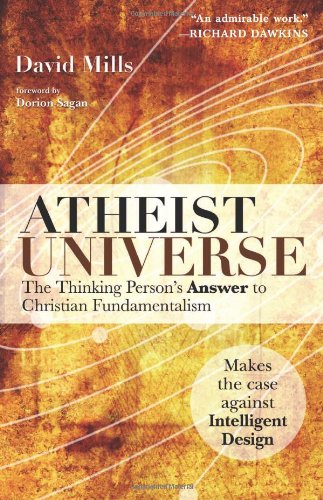
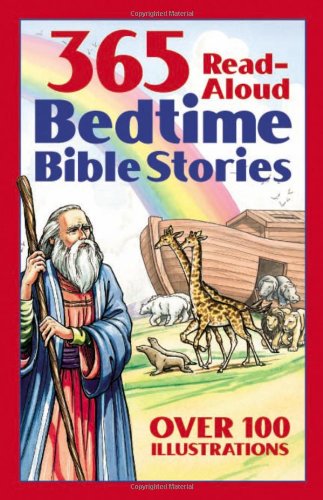
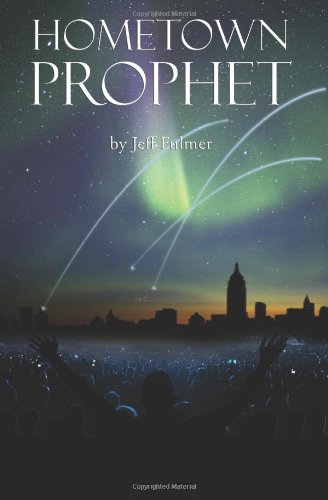
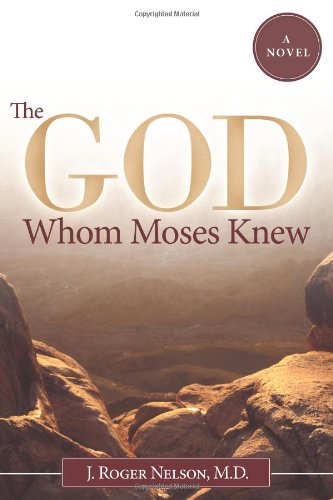

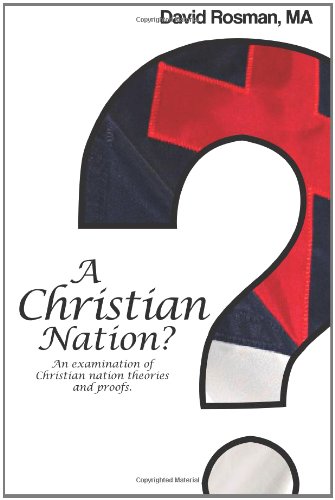
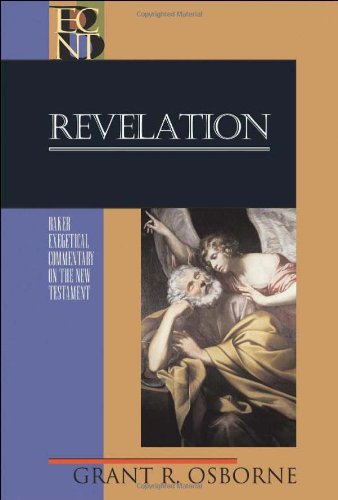
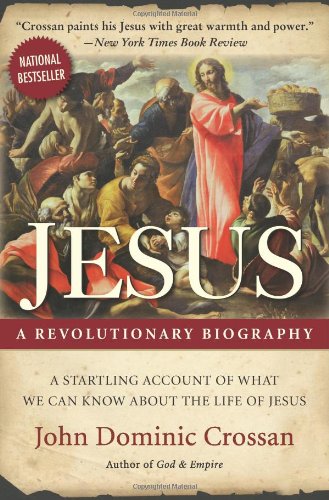
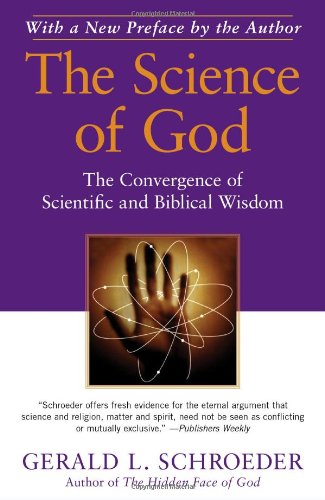
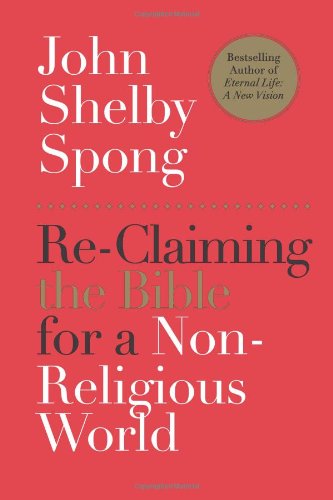
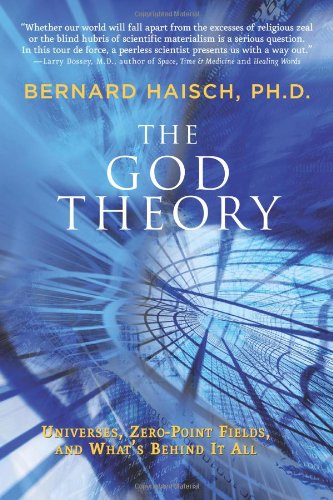

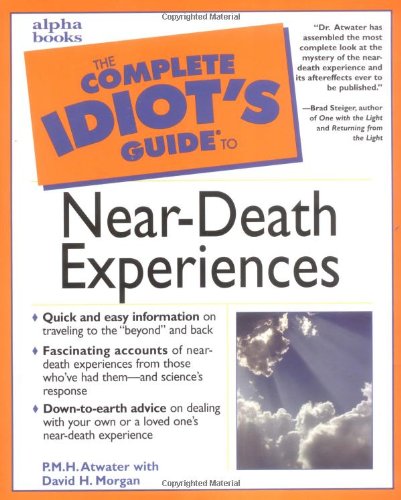
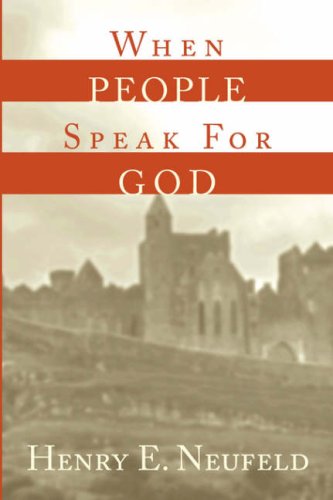
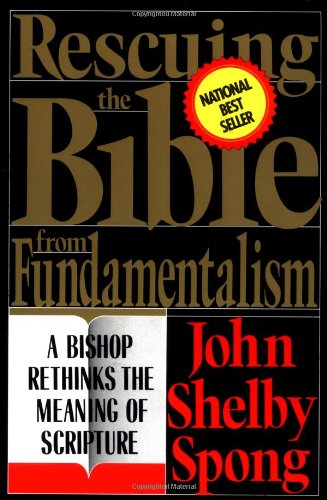
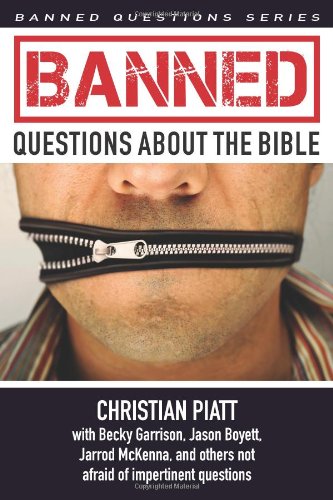
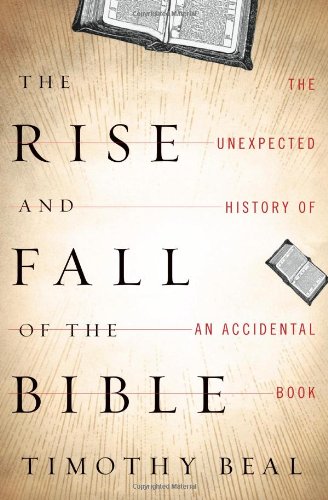
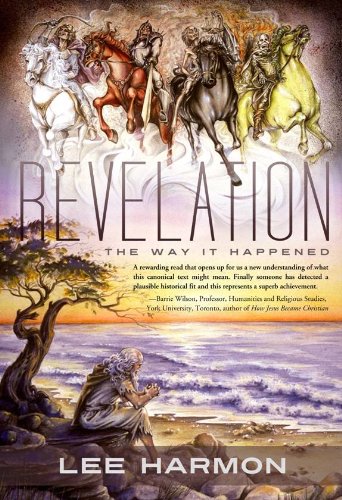
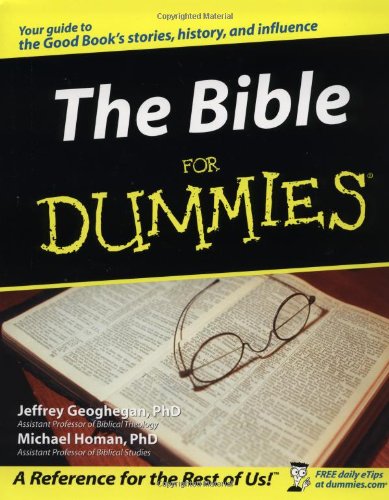









 354 Circles
354 Circles
 603 Goodreads Friends & Fans
603 Goodreads Friends & Fans

 Hello! I'm an author, historical Jesus scholar, book reviewer, and liberal Christian, which means I appreciate and attempt to exercise the humanitarian teachings of Jesus without getting hung up on any particular supernatural or religious beliefs.
The Bible is a magnificent book that has inspired and spiritually fed generations for thousands of years, and each new century seems to bring a deeper understanding of life’s purpose. This is true of not only Christianity; through the years, our age-old religions are slowly transforming from superstitious rituals into humanitarian philosophies. In short, we are growing up, and I am thrilled to be riding the wave.
I avidly read all thought-provoking religion titles. New authors: I'd love to read and review your book!
Hello! I'm an author, historical Jesus scholar, book reviewer, and liberal Christian, which means I appreciate and attempt to exercise the humanitarian teachings of Jesus without getting hung up on any particular supernatural or religious beliefs.
The Bible is a magnificent book that has inspired and spiritually fed generations for thousands of years, and each new century seems to bring a deeper understanding of life’s purpose. This is true of not only Christianity; through the years, our age-old religions are slowly transforming from superstitious rituals into humanitarian philosophies. In short, we are growing up, and I am thrilled to be riding the wave.
I avidly read all thought-provoking religion titles. New authors: I'd love to read and review your book!
 Hi! While Lee writes the articles and reviews the books, I edit, organize, and maintain the blog. The views expressed here are Lee's but I'm his biggest supporter! :-)
Hi! While Lee writes the articles and reviews the books, I edit, organize, and maintain the blog. The views expressed here are Lee's but I'm his biggest supporter! :-)
Connect With Me!